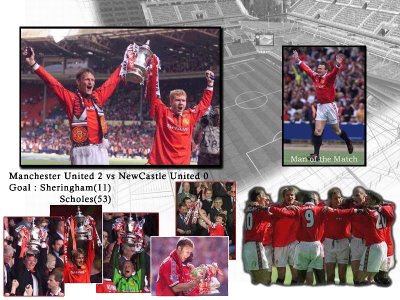心理学课上,周正教授正在授课:"上次下课时,一个男孩子递了张纸条:'我是个比较内向的人,又没什么特长,不会踢足球,不会打篮球……唯一的爱好是写作。
进入大学后,看到周围的同学在交往、工作中左右逢源、如鱼得水、洒脱干练,很是羡慕。就要步入社会了,我该如何规划自己的前途呢?……周教授,我想我还是当一名作家比较好,一个人,也不错,您说呢?'这个问题要不要回答?"周教授扬了扬手中的纸条。 "回――答――"同学们兴致大起,"作家梦"可是不少惮于竞争之人的救命稻草啊!
周教授放下手中的纸条:"好,今天我就当面回答这位同学――我的态度,很简单:凡是做'作家梦'的人,都是逃避现实的、无能的人……"
话音未落,下面已是一片嘘声。 "我来问问你们,一支笔、一张纸的事,谁不会?当作家,就是这么简单,人人都会。我常说,一流人才在军界和商界,二流人才在政界,三流人才在学术界。
对军人而言,你领十万人,我领十万人,没本事,死的十万就是你的。这里要的是综合素质,是挑战,所以军界的人是最强的。
商界也是如此,投入两个亿,三个月后,可能家破人亡,你干不干?要的是同样的素质。
政界就不同,他可以调整、迂回,政策不行可以再改,是有余地的,但要负责任。
而学术界,一次不行两次,两次不行三次……永远不行都可以。军人和商人的成败一目了然,唯有作家可进可退,无所谓胜负成败……"
有人若有所思地点头。
"某著名作家在一所大学做讲座的时候,有同学问他怎样才能当作家?他说:'首先养活你的家,再说当作家!'"
周教授认真地看着大家,眼神里自然地流露出一种深切的关爱,"
《论语》中记载:有一次孔子来到卫国,见卫国人很多,就说'庶矣哉',意思是'卫国人多啊'。
旁边有人问'既庶矣,又何加焉?'意思是'人多,怎么办呢?'
――问题来了,有人,人多了,怎么办?我们该做点什么呢?你们认为孔子会怎么说?"
"教之――"大家很自信,大教育家嘛。
周教授微笑着摇摇头:"子曰:'富之。'
――孔子说:'让他们富起来。'你们以为有了人就要教育,却不知道在教育之前,首先要让人富起来。旁人又问:'既富矣,又何加焉?'
――'人们富足以后,又该如何?'"
"教之――"大家会心一笑。"对,人富足了才有条件接受教育。吃不好穿不暖的时候,教育是句空话,况且对衣食无安的人大谈教育,这种行为本身就不厚道。孔子不愧是教育大家,他这'不富不教'的意义很深远!
按照心理学家马斯洛的需求层次理论,人只有满足了基本的生理需求以后,才会去考虑安全、爱与被爱的需要,才会有自我实现的需要。"
"举例而言:勒紧腰带过日子的小两口,到了情人节,丈夫一咬牙,送爱妻一大束玫瑰,这时候妻子是什么感觉?" "浪漫吧?" "是浪费!"同学们争起来。 "还不如送我一双毛皮手套呢!你看看,这个冬天我的手又冻了,净花冤枉钱……"周教授开玩笑似的嗔怪道,大家在嬉笑中亦有所感悟。
"当人过日子都紧张的时候,是不会想着浪漫的,那是有钱人的享受。问你们一个常识:知道雄鸟追求雌鸟的时候,送给雌鸟的是什么?" "虫子。" "对啊,一送虫子,雌鸟就会意了:这家伙生存能力强,跟着它,今后我们的孩子不会挨饿。这是一个连鸟都明白的道理。"
下面安静极了,生怕漏掉周教授的任何一句话。 "'仓廪实而知礼节,衣食足而知荣辱。'
自古以来,人们便说'饥寒起盗心'。能吃得好、穿得好,生活安定之后才能让晚辈过正常的生活。如果没有东西吃,连父母的东西也会抢过来吃,兄弟的就更不用提了。在人们陷入最差的生活状态时,就顾不得什么道义。这就是人类真正的本性。
中国的先哲早在几千年以前,就已指出了人类的真实形貌。"
"在衣食无法获得满足时,依然能保持礼节,这是凡人做不到的事情。"
"如果希望这种兽性不要出现,期待我们最理想的人性流露,也为了维持社会秩序,提高道义,彼此能懂得礼貌,并以此幸福生活,就必须确保每个人都能有自己的收入。换句话说,要让大家能赚到钱。基于义务,我们必须要赚钱才行。
"必须赚钱!――看来,所谓"以人为本",我们并不比古人懂得多。 "雄性丧失了生存能力就丧失了天赋雄性之本性。历史表明,男人的不幸、民族的不幸源于贫穷。所谓'贫病交加'、'穷凶极恶'……因此,你们必须认识到:挣钱是公德,要重视金钱。我这样告诉你们:男孩子,你可以不会踢足球,不会打篮球,可以不会作诗,不会弹钢琴,不会做饭。可以什么都不会,但是必须会挣钱。"
周教授的话字字珠玑、鞭辟入里。我感觉很多男孩子的眼睛在放光,不知他们看到的是压力还是希望?
"最后,再给你们一个例子,你们用心思考。比如说,快到春节了,太太说:'该过春节了,咱爸咱妈想来深圳这边,看看咱们和小外孙。'她先生立刻就说:'来啥来?根本不用来!咱已经忙得够呛了,再让他们过来,净添乱!再说,这路上,老年人多不方便!'这个男人现在是什么状态?" "气急败坏!"有人笑着回答。
"记住,凡是气急败坏的男人都是穷男人。但是另外一家,太太说:'老公啊,快过春节了,老人们都想过来看看咱们,一年没见面了!'先生说:'哦,好啊好啊,应该让他们过来。这样,你让他们坐飞机过来。'这个男人就不气急败坏,他很平静。'还有,你看,咱家的房子,这三层七八间,冷冷清清的,孩子也没有人陪着玩。爷爷奶奶来了,或者姥姥姥爷来了,家里有生气,过年过节的有生气多好!'他为什么这样说?因为这个男人有钱,他不怕,他有地方住,有钱让父母过来。他有办法显示他的孝心,而且这种男人往往不会发脾气。因为他有很大的控制权,有很好的基础,任何事情到他这里都可以化解,可以平静对待。然后,一家人高高兴兴地过了春节。老人走的时候,先生问太太:'爸妈他们有什么要求没有?''没有没有,他们都很高兴,一点要求都没有。'先生说:'我听见了,他们说老三要结婚,没房子住,他们想空出房子去住老房。这怎么可以呢?这样,在老家花6万块钱,我们出3万,三弟拿3万,盖一栋两层小楼让他们住,爸妈就不用动了。'听了这话,太太抱着丈夫说不出话来,这样的老公哪个太太不爱不感激呢?好,房子盖成了,弟弟说姐夫是好人,全村羡慕,父母开心,一家生活幸福。3万块钱,只是他一个月的工资,他愿意拿出这3万块钱。" 周教授最后说:"愿意做哪一个,你们自己选择。但是,要记住:知识不一定会带来金钱,挣钱靠的是能力。"


